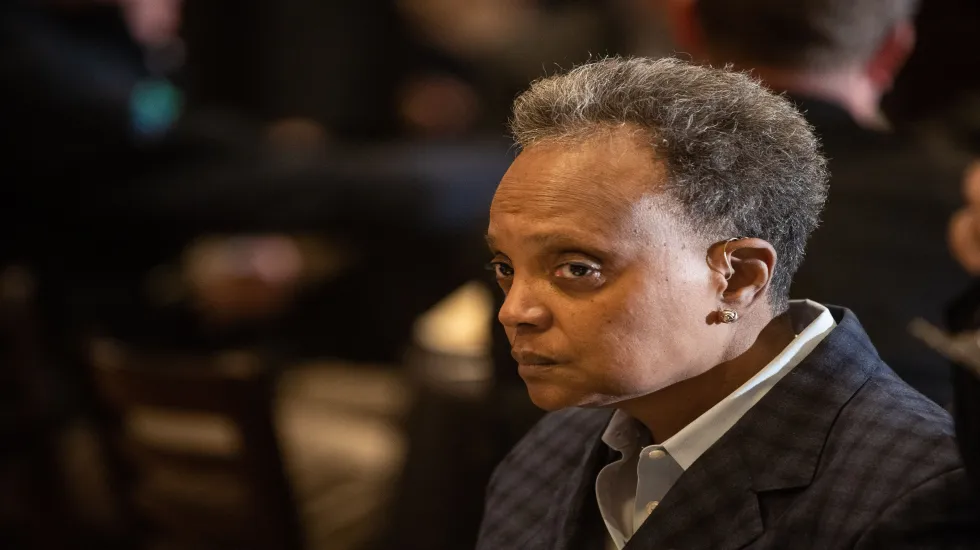
Mayor Lori Lightfoot said Friday she will use the racketeering indictment of former Illinois House Speaker Mike Madigan to renew her push to eliminate aldermanic prerogative over zoning despite resounding City Council opposition that includes her closest allies.
Zoning Committee Chairman Tom Tunney (44th) and Education Chairman Michael Scott Jr. (24th) are among Lightfoot’s staunchest City Council supporters. Both men have warned the mayor to back off from a vote she is destined to lose.
But Lightfoot argued Friday that she has no choice but to finally deliver on her campaign promise to eliminate the unwritten rule that gives alderpersons unbridled control over zoning in their wards.
“Many members of the City Council have spoken publicly about, `We don’t need any more reforms.’ I don’t think that’s right or accurate,” Lightfoot said during a taping of the WBBM-AM Radio program “At Issue” to be broadcast at 9:30 a.m. and 9:30 p.m. Sunday.
“I’m going to work with them to try to get them to understand ways in which the process as it works, particularly around zoning, continues to be flawed and ripe for corruption. And that is a fact that we have to reckon with.”
While working undercover, former City Council Zoning Committee Chair-turned-FBI mole Danny Solis (25th) is accused of trying to use aldermanic prerogative over zoning for corrupt purposes on a land deal in Chinatown that was never consummated.
The Madigan indictment accuses the former speaker of agreeing to transfer control over a state-owned parking lot in Chinatown to the city to clear the way for a commercial development in Solis’ ward. In exchange, the developer agreed to hire Madigan’s law firm to handle its property tax appeals, the indictment alleges.
“You cannot read that indictment and not have pause about the way in which Danny Solis ran the Zoning Committee for his own profit and the profits of others in a way that wasn’t just unethical. It was illegal,” the mayor said.
“We have to take this moment to reflect on what, if anything, has changed. And it cannot just be personality-driven.”
Lightfoot called Tunney a man of “impeccable integrity.” But she wondered aloud what would happen when Tunney yields the gavel.
“What do we need to do to build in some institutional guardrails to make sure that, no matter who heads up that very important and powerful committee, they are going to operate on the right side of the law and that the work that’s being done by that committee and projects being brought forward and supported by aldermen are supported for the right ethical, legal reasons?” she said.
Lightfoot acknowledged that alderpersons know their wards and constituents’ needs and desires better than anyone and have an “essential role to play” in development decisions.
“The challenge is, how is that voice used and is it used in a way that’s transparent?” she said. “Is it used in a way that is always in the public’s interest and not in the individual alderman’s interest? That’s, I think, where the rubber really meets the road.”
As a former federal prosecutor, Lightfoot said she read the Madigan indictment with an eye toward identifying “weaknesses in the way in which city government and, particularly, City Council is structured that would have facilitated” the criminal conduct alleged.
“There are … three former aldermen who are cryptically described but obvious. And there was [a] question about others who may be on the current city payroll. That is a great cause for concern for me,” she said.
Also during the radio taping, Lightfoot said she has a “clear idea how compromise can be reached” to avoid a costly referendum on Chicago’s new ward map.
Like all compromises, she said, “Somebody gets something. Somebody loses something.”
To reach a deal, Lightfoot said the Black and Latino caucuses need to “put personality and personal agendas to the side, get to the table and hash out a real deal.”
She added, “When it’s appropriate for me to reassemble that group, I will do so. They’re not there yet.”







